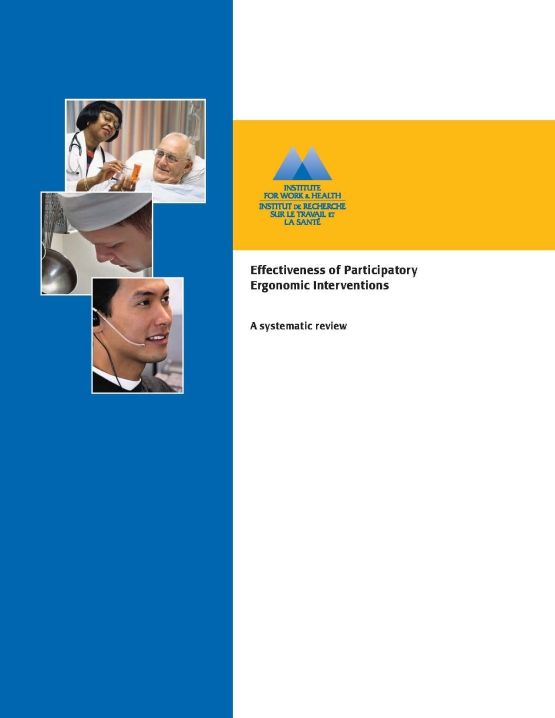Work-related musculoskeletal disorders (MSDs) are responsible for considerable financial costs in the form of workers' compensation claims, medical assistance and lost productivity. As well, the health and financial burden of MSDs extend beyond that demonstrated in administrative databases, as they affect workers, their families, the medical system and society in general.
It has been recognized that poor ergonomics, particularly inappropriate design of equipment, workplaces and work processes, can result in important risk factors for MSDs and the disability that ensues. Consequently, workplace ergonomic interventions have garnered interest as a means of improving working conditions, occupational health and productivity. One such intervention is workplace-based participatory ergonomics programs, in which workers, supervisors and other workplace parties jointly identify and address work-related ergonomics hazards that can lead to injuries and health problems.
But are these programs effective? This Institute for Work & Health systematic review set out to answer this question, and the results are shared in this report.
